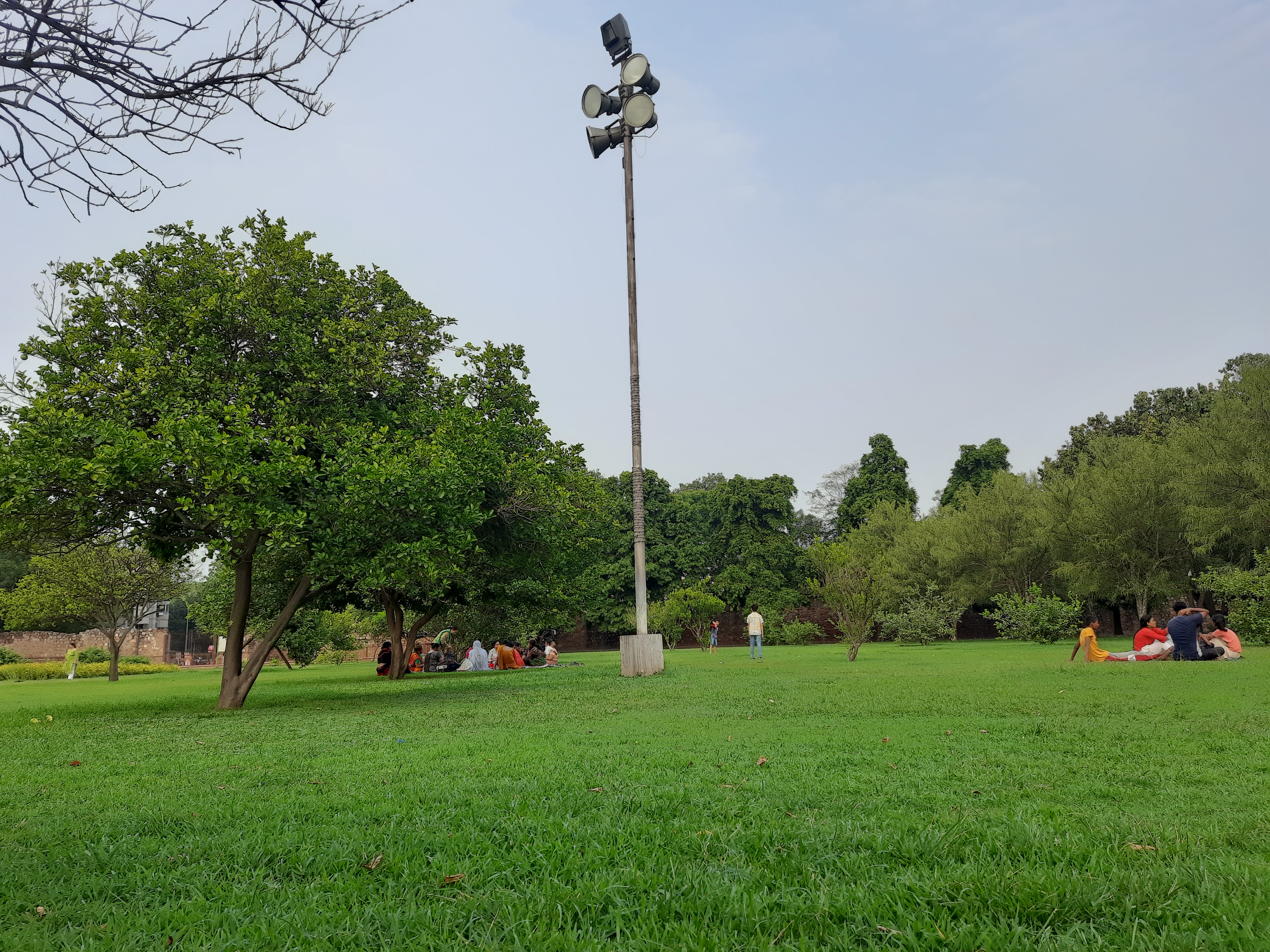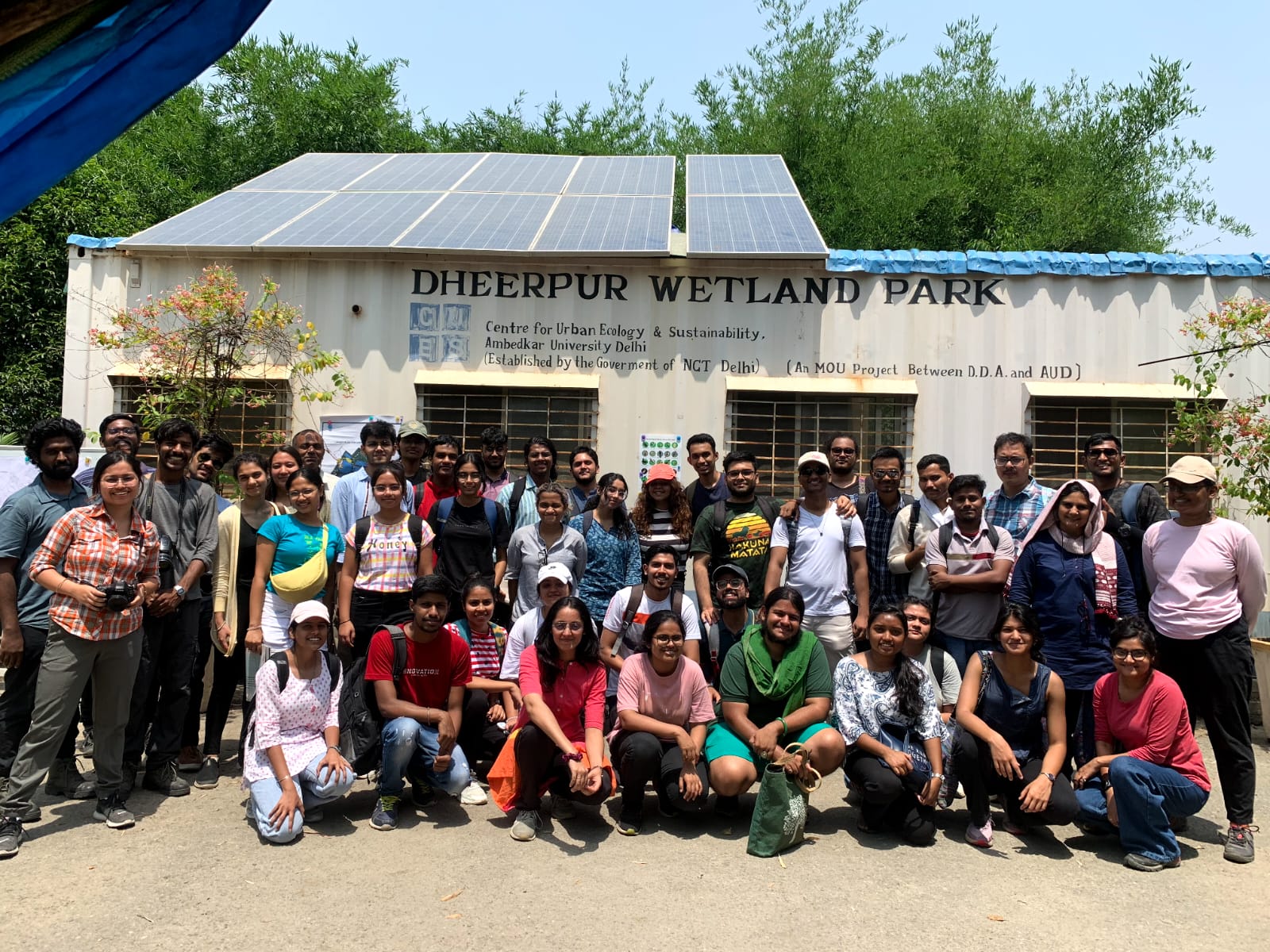
Welcome To
Centre for Urban Ecology and Sustainability
Our Mission
The Centre for Urban Ecology and Sustainability (CUES) aims to address urban ecological issues with a view to offering solutions, and develop a skilled cohort of professionals who actively engage in, and find solutions for urban ecological challenges. The Centre serves as a focal point where researchers, government & non-governmental, citizens and private agencies converge and participate in the planning, implementation, and evaluation of sustainable environmental projects in cities. CUES collaborates actively with other schools and centres in AUD like the School of Human Ecology, School of Development Studies (SDS), School of Design (SDS), Centre for Community Knowledge (CCK) on areas of common interests. The Centre envisages to build linkages with teaching and research programmes within the University to provide students with hands-on learning, field practicum and engaged scholarship opportunities. The Centre hosts interactions and dialogues between Universities and other organizations in the city across thematics in urban sustainability.

News in Your Inbox
Subscribe to our website to receive updates from our Centre.
Our Blogs
-

Beyond the Nocturnal Veil: Exploring Diurnal Roosts of Fruit Bats
While there are many preconceived notions about bats, very little is known about their daytime roosting habitats and habits. This piece explores the diurnal roosts of fruit bats within the urban landscape of Delhi.
-

Cities – Far Away from Nature?
Global populations continue to urbanise at an unprecedented rate, with cities expanding into huge concentrations of concrete, steel, and glass, raising sustainability concerns. I’ve attempted to explore this issue from the standpoint of urban ecology, an interdisciplinary branch of study that looks at the complex interactions between the built environment of cities and non-human species.
-

Beautiful Dragonflies of the Not-so-Beautiful City
This article investigates dragonflies in the city. While they are specialists in flight, very little is known about their pre-metamorphosis aquatic life. Since urban areas create niches where multi-habitat creatures like dragonflies can flourish, should cities be chastised as unwise, unsustainable endeavours or can they be reimagined as housing nature in changed forms?
-

Birding in the Wetlands
Merlyn Antony “Hope” is the thing with feathers – That perches in the soul – And sings the tune without the words – And never stops – at all – – Emily Dickinson As the birds’ chirps flooded the morning sky, the students of MAED (M.A. in Environment and Development) along with PhD scholars at…
-

Bats: The Night Workers
Shiwani As the sun goes down, the nightwalker, or rather, I would say, night fliers come out, one can see colonies of bats flying in the sky and sometimes wandering near a tree or plant. On one such night, as I stood on the balcony, sipping a cup of tea, I observed some bats visiting…
-

Out of Place and Out of Space – Translocation and the Urban Monkey
Aditi Dhillon This year, in June 2021, the Karnataka High Court passed a judgement according to which monkeys entering residential spaces were to be translocated and moved to their natural habitat by the state. This judgement, however, was not one of its kind. It was, in fact, along the lines of a judgement passed by…
CUES Restoration Project Site: Dheerpur Wetland, Delhi


Description:
Restoration of Dheerpur Wetlands: A collaboration of CUES, AUD & DDA
The marshes and wetlands of the Yamuna region once extended from Azadpur to the present-day banks of the river. This region has been heavily drained and undergone an extensive land-use change during the last fifty years. Remnants of once widespread historical marshes can now only be seen near Jahangirpuri, Dheerpur and Burari. Since wetlands are increasingly appreciated globally and nationally for their socio-ecological functions and provisions, the Delhi Pollution Control Committee (DPCC) decided to restore the wetlands of Dheerpur.
Fragments of these wetlands have been filled up, dyked, dried and carved out for seasonal agriculture. Hence, it may not be sufficient to only stop their further degradation of wetlands of Dheerpur but would also be necessary to restore them for posterity. With this view, the Delhi Development Authority (DDA) has entered into a Management Agreement with Ambedkar University Delhi (AUD), in which the land ownership remains with DDA, and AUD would restore the wetlands. DDA would assist in civil work, funding research and restoration work, whereas AUD is entrusted with providing technical guidance for restoration and maintenance of the wetlands.
The Management Agreement for Dheerpur Wetland Project between AUD and DDA was signed on 17 February 2015. Following which the project was formally inaugurated on 19th June 2015.
Click here to read more on the Dheerpur Wetland Restoration
Location:
Dheerpur Wetland Project Site, Gandhi Vihar, Gopalpur Village,
Delhi 110009
Visiting hours:
10am – 5pm
Project Initiated:
Delhi, June 2015
























